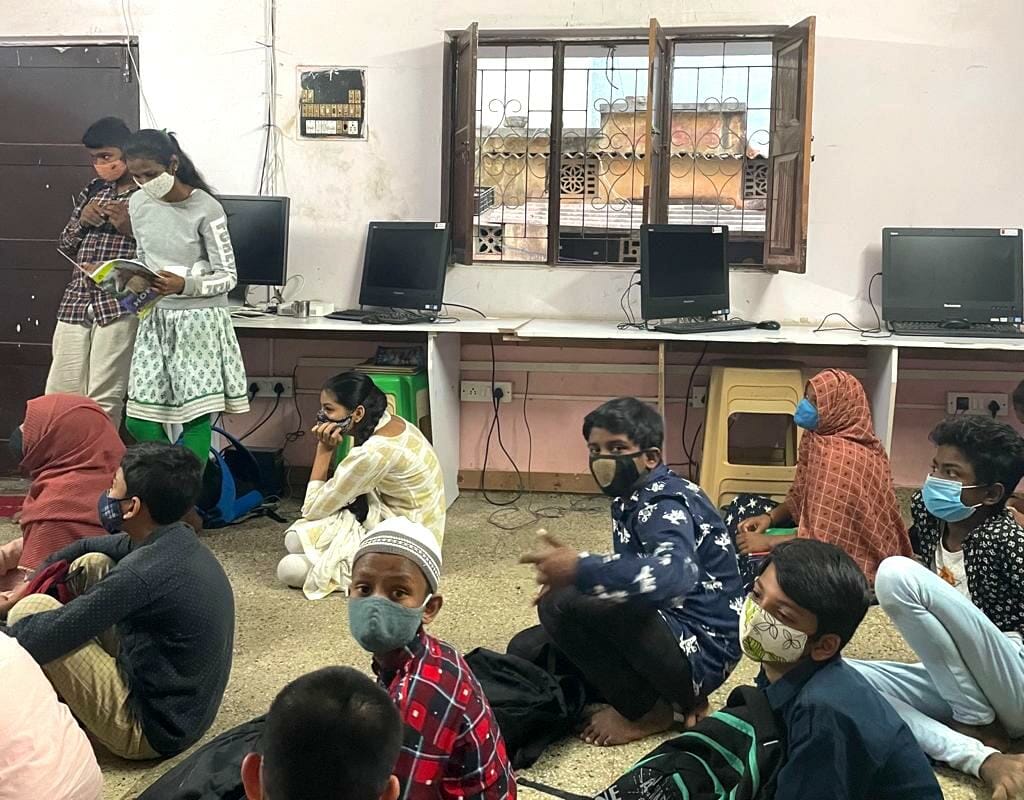The youth in Bengaluru’s many slums are caught in a vicious cycle. Of poverty, of lack of access to education and skill development resulting in their inability to get decent employment. These are key factors that lead to substance abuse issues among these youngsters as they grow up in one of the most unequal ‘global’ cities of India.
The trajectory of young people in Bengaluru’s Rajendra Nagar slum, located in the vicinity of the high-income Koramangala neighbourhood, and the choices they make in the midst of the high-alcoholism issue in this informal settlement is not uncommon. The presence of a Regional Passport Office nearby is an ironic symbol of how alienated the youth of the slum are from the city’s development process.
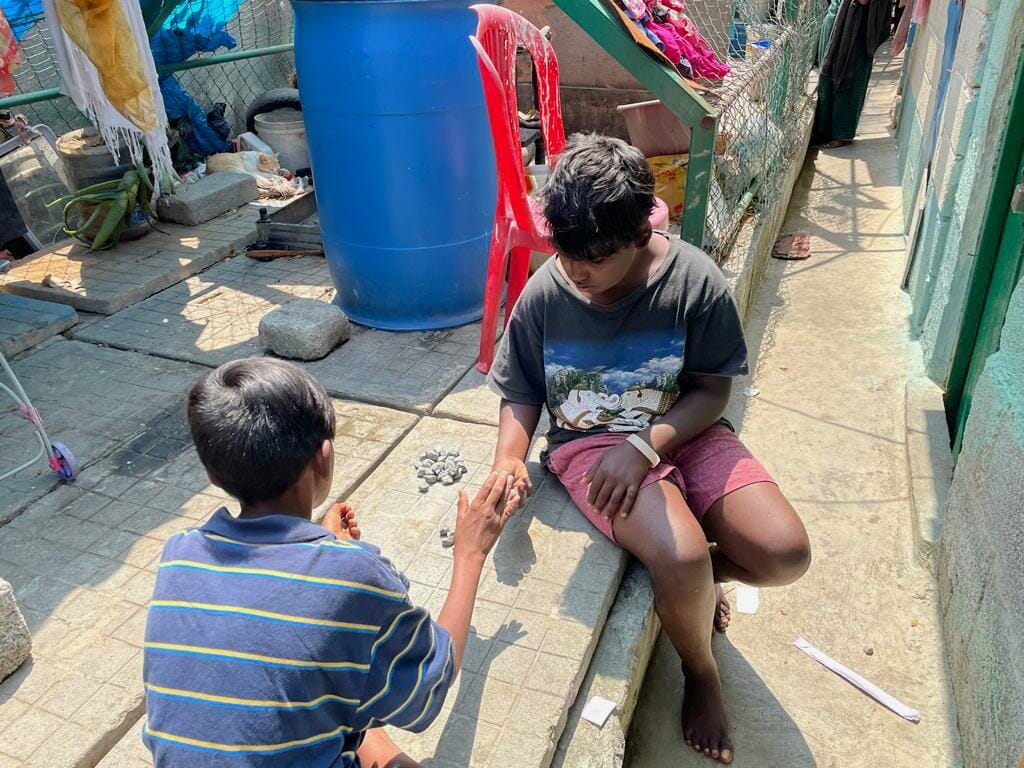
Read more: How lockdown + unemployment + hunger + liquor increased domestic conflicts in low-income households
Proliferating bars and liquor outlets in Rajendra Nagar Slum
In Rajendra Nagar, one glaring issue is the number of liquor stores and bars in its vicinity. “We have three bars within the community, how can you expect the area to not have these issues?” says Radha, an elderly resident of the community, adding, “There are two more further down the road”.
There has been resistance from some families, local organisations and activists in the area, yet the bars have continued to function. Some residents I interviewed attribute this to the low awareness within the community and the bar owners’ strong political ties. The area is represented by MLA Ramalinga Reddy, the current working President of the Karnataka Pradesh Congress Committee.
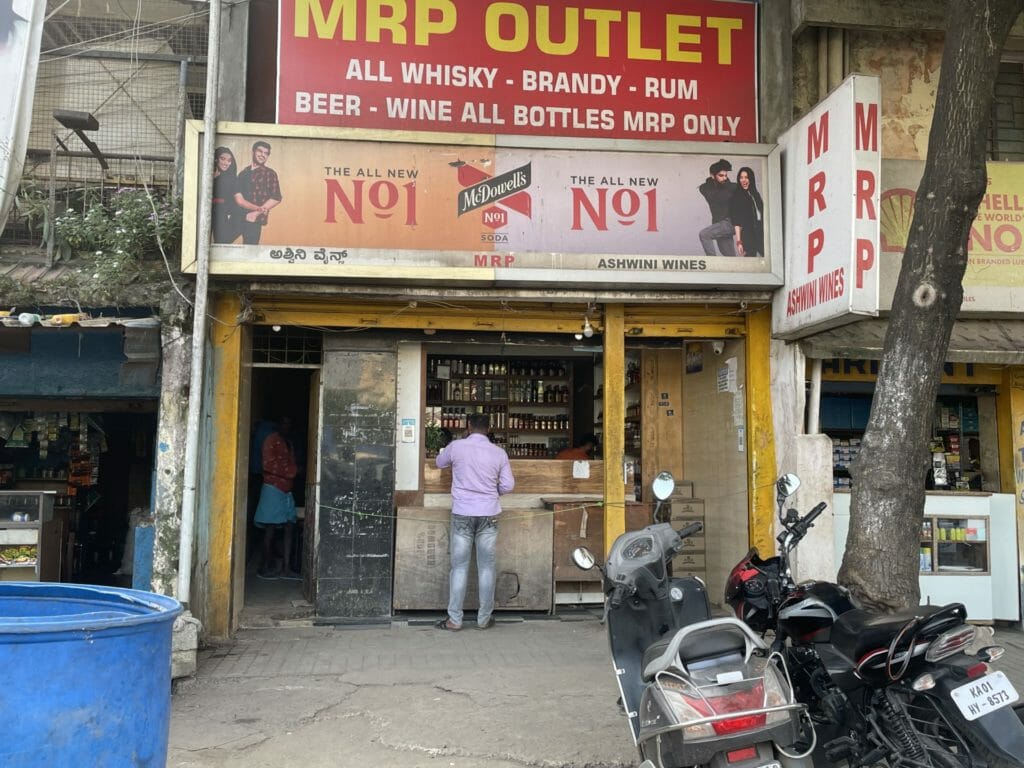
There are very few avenues for the slum’s youth, many of whom find work in these bars and shops. “We need playgrounds,” points out Radha, adding that the only ground available to the slum residents is at Adugodi, a 30-minute walk from the slum, near Koramangala Police Station.
The stigma faced by slum residents becomes apparent in public parks. More than once I heard about incidents where slum children were chased out by security guards and park regulars. Perhaps it is this stigma and the feeling of disconnect with the mainstream that has played a role in slum residents finding solace in alcohol.
With access to cheap liquor, these ‘MRP’ shops have hijacked the youth’s agility and ambition, hindering any chance of economic mobility. Aside from their children being jobless, the biggest concern among families I spoke to, is the issue of violence in the slum. A woman, who spoke to me on condition of anonymity, described the rising trend of violence at night, with acts like mugging being a common occurrence. I was specifically advised not to visit the neighbourhoods in late evenings due to high levels of alcohol consumption in those hours, often leading to violent exchanges.
Perception of slums feeds into discrimination
Such incidents reinforce the perception of ‘nuisance’ that slums and their residents are associated with.
Also, lack of employment in regular, stable jobs creates a directionlessness in the lives of the young who have little to look up to within the community. I met youngsters who have taken up jobs in the new wave of delivery logistics with firms like Swiggy and Uber. While the brand name gives them some comfort, pay is sporadic and work hours are high.
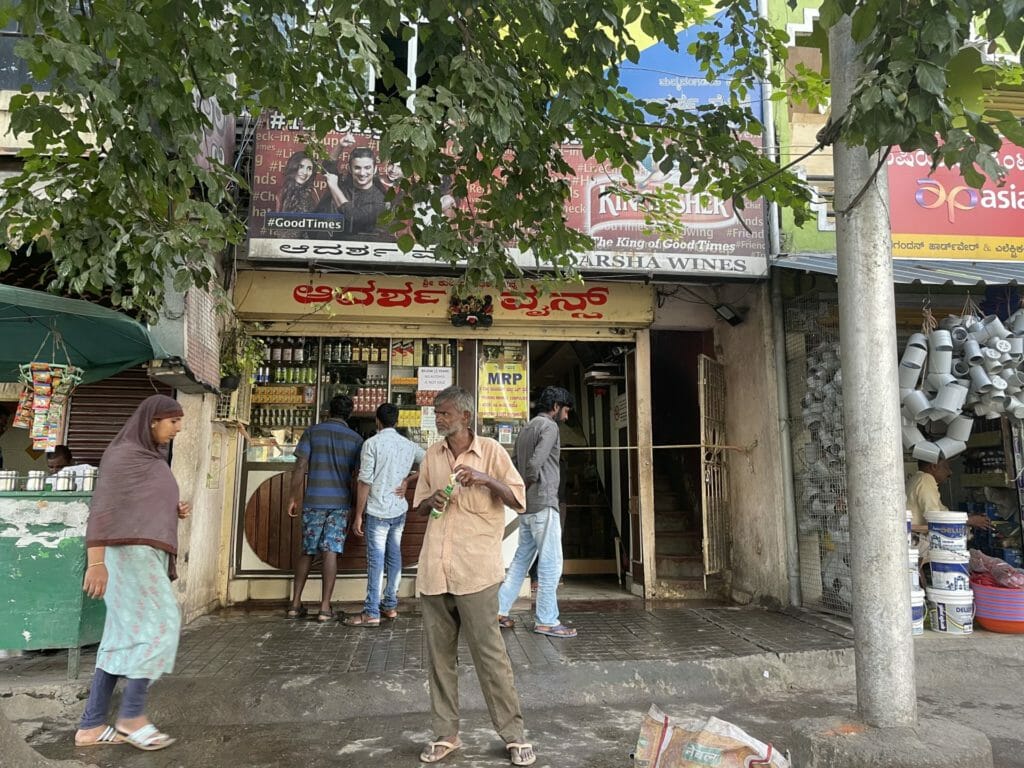
Some young people end up working as helpers in various general stores around the neighbourhood. While a few others, still dreaming within unreasonable proportions, idolise cinema stars and hope to chart a way ‘out’ of the slum. How and when this way will be created, they have no concrete pathways, only ambiguous aspirations. With no role models, their imagination is limited to their immediate surroundings. Even the iconography of Ambedkar within the localities has done little to inspire the young people to pursue political action.
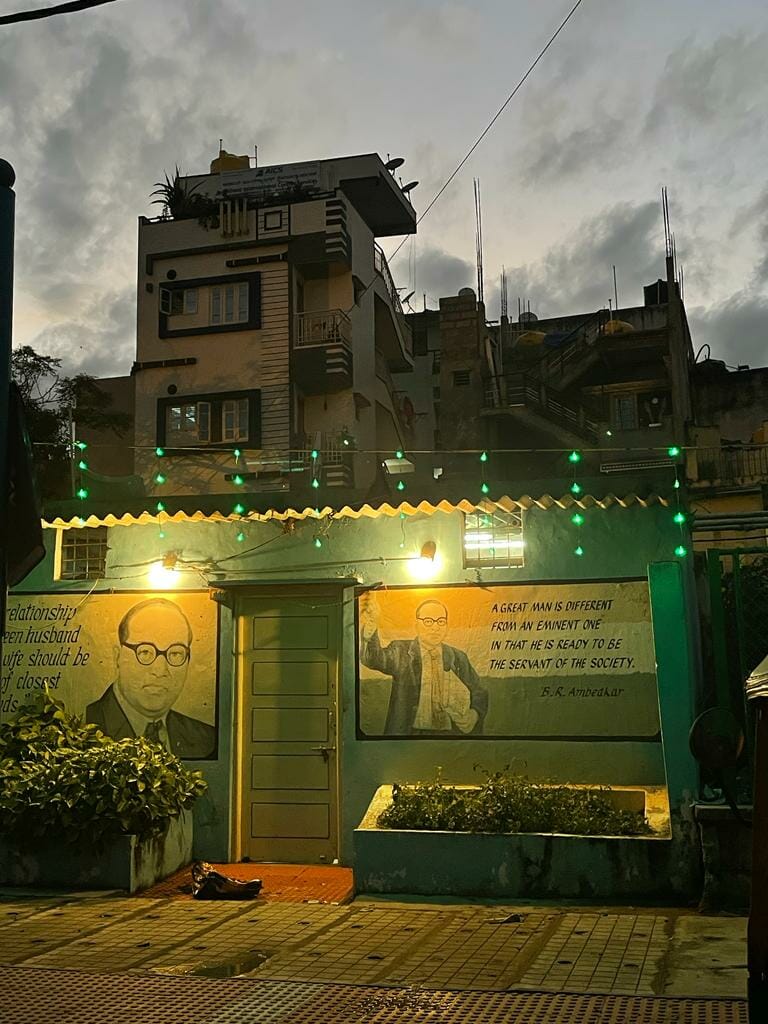
Read more: Evictions: The harsh reality of migrants in Bengaluru’s slums
Civil society organisations to the rescue
Yet, there is a brighter side to this depressing situation. Civil society groups and volunteers have been able to make an impact, though limited, that there is hope for the young people living in these slums. These interventions have come from within the community, making them credible and trustworthy. Rizwan, an auto driver, told me that his plight used to be similar to other alcoholics’ situation in the community. “However,” he adds, “I started working for COVID relief, delivering food and essential supplies during the lockdown, and that changed me.” He now spends his morning hours supplying food and ration from various community kitchens of Bengaluru to poorer localities.
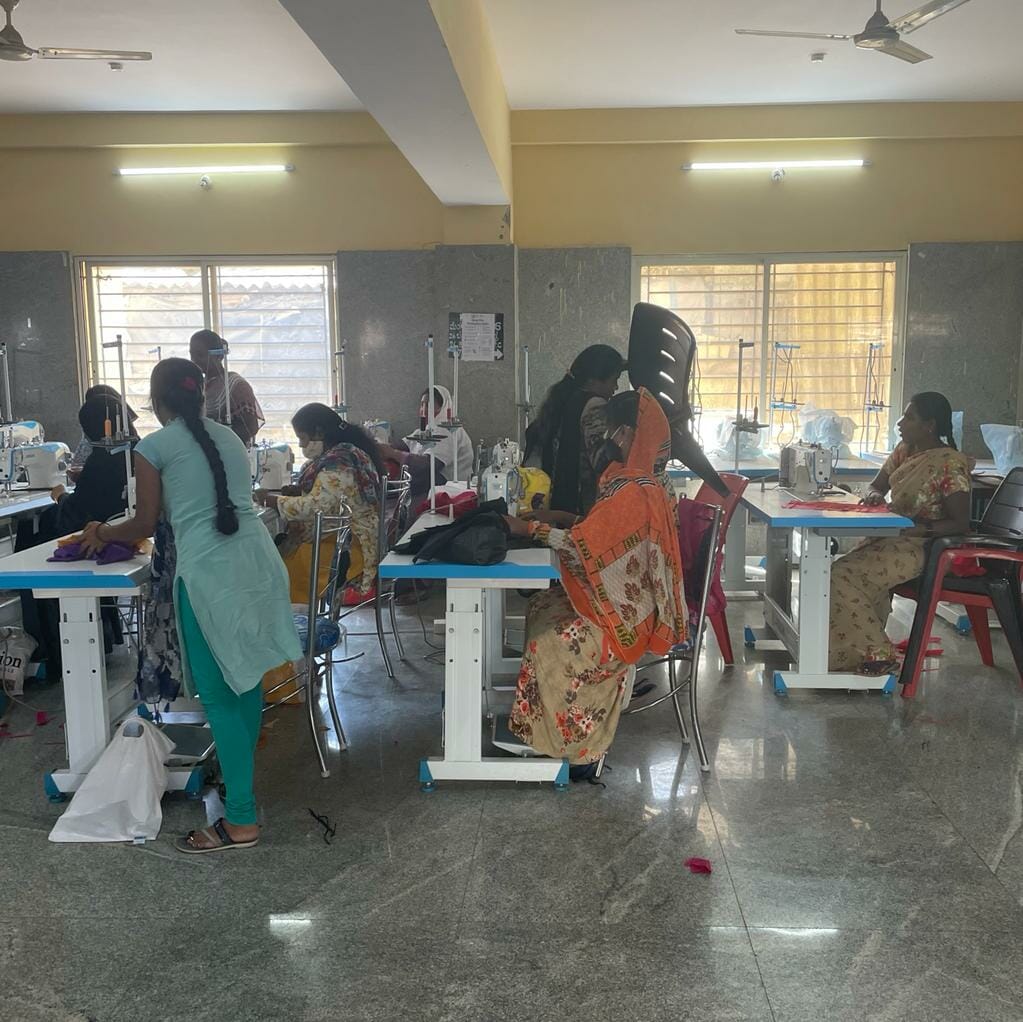
Organisations like Maarga have been working to increase the employability of residents belonging to marginalised groups. A version of this is seen in their skill-based programme where women are trained as tailors. Swabhimaan, another organisation active in the area has attempted to create educational and vocational opportunities for the youth. It recently piloted its Youth Empowerment Programme which aims to improve awareness and soft skills among young people between the age group of 18-25. Similarly, My Challengers Group of Disability Charitable Trust is another group of young people that works on awareness campaigns and vocational programmes.
Attempts like these need state support to expand and make a sustainable difference. From the on-ground realities, it is clear that the state support through conservative means of supply of food hasn’t solved key issues within the slum.
There is a definite need for support in human capital development programmes, that focus on the capabilities and the internal well-being of individuals. Such approaches empower the young to take agency over their own lives, making them independent and brightening the prospects of slums’ future.
